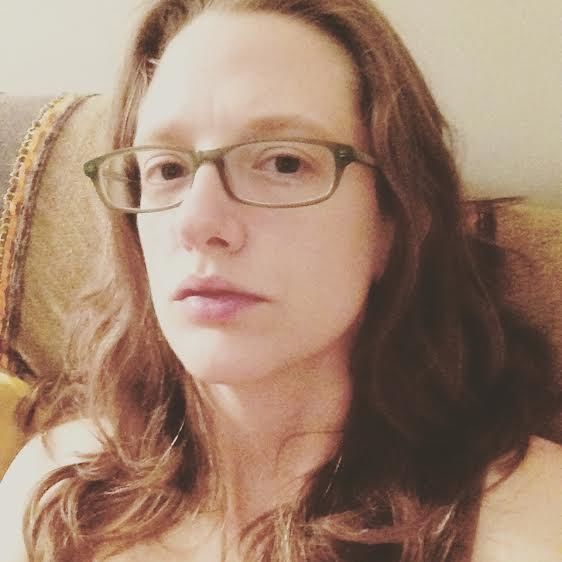Gabriel Ojeda-Sague
Oil and Candle
Timeless, Infinite Light
74 pages, 4.5" x 7"
Publication Date: 5 Mar 2016
ISBN: 978-1-937421-17-5
Gabriel Ojeda-Sague’s Oil and Candle is a short book of rituals, their failures and fallibility but also their power as vessels. Most striking is the persistent presence of a personal voice amid intellectual ideas about poets, race, performativity, and blood. We are introduced to or reminded of specific totems, but not from an arch poetic voice nor a condescending academic one.
Ojeda-Sague writes, “they said I really / should just put it / in the trash which / felt weird to say / the least but I did.” Here, he’s called the botanica to ask how to dispose of his candle nub, having burned it for seven days in his dorm room. He admits to the reader that he’s googled the word for “dispose” before making the call, offering the vulnerability of not-knowing, the humbleness of asking, and the respectful desire to avoid saying “poner el en zafacón.” Don’t overthink it, the advisor at the other end of the line seems to say. The poet invites us to not know with him and to learn. Resisting the “informal” sentence that asks “how do I put it in the trash,” he is told that informality is appropriate after all. The interaction is characterized by kindness, a relief in contrast to the nefarious activities of nations and institutions, by and large.
This episode of prayer candle disposal appears as a middle section of the long poem “Limpias,” which changes shape as it runs its course, in its first pages functioning as a condemnation of the entrenched, neoliberal poet persona. The first poem of the collection, it begins: “there is a coded syndrome / of poets who want blood / who want to present small, found bodies / because they know how to.” Ojeda-Sague’s critique risks displeasing arbiters of taste in poetry, though two counter arguments readily present themselves in response to such a concern: 1. those arbiters might very well be the same poets who are the subject of the critique and 2. the orientation of Timeless, Infinite Light as a small press in alignment with “work that resists structures of oppression, both in form and content” provides an ideal venue for oppositional, fearless poetics. The risk, if any, is well worth undertaking. On the next page, Ojeda-Sague continues: “if you must have the blood, you can’t pretend you dislike it // if you must have the blood, you must also take my plantain chips and my unfortunate life.” The blood, in other words, is not free; it has a cost, and poets who might wish to apply trauma to their work like an egg wash to a pie crust are at best making a mistake. At worst, they are stealing or appropriating the pain of others.
Nearly twenty pages later, near the end of the poem, “the poets are having a contest where they hold up Kleenex soaked with how much blood they can get out of themselves or others” and a white man wins the contest because he is “the first person in the audience to pass out.” In the intervening pages, the poet’s mother and abuela have appeared in reflections on rituals passed down, revised, or abandoned. The poets, in conducting their contest, are attempting to create a new ritual; however, because the ritual is capitalist in nature, built around a notion of “how much […] they can get,” they end up with the same old result. Not only that, but the winner is the first participant to get his revulsion noticed. The white man wins because he is the most visibly affected, an equally apt proxy for the cult of personality in poetry and attention as currency in politics. When the poem ends, Ojeda-Sague is alone in his room “drinking a root beer.”
What does it mean for a ritual to be described as useless? In “Abrecaminos,” a long poem that concludes the collection, the poet provides an introduction that describes “a useless 7 day ritual involving an abrecaminos candle, [and] an ace of wands from the El Gran Tarot deck […] focusing on the intention of opening paths of resistance against warfare.” Is the ritual useless if warfare was not reduced, or if paths were not opened? Ojeda-Sague depicts a shared sense of hopelessness in the face of United States and global military activity, a feeling that causes some individuals to turn their attention to more local arenas. Yet, we are no better equipped to cope with “the dead / latino queer” whose face appears on the local news.
Philadelphia appears in this poem as the poet’s home base, and exists inseparable from its outdated moniker as the city of brotherly love. In it, the poet wonders “how does the body survey / its own impossibility, / starting with war? / how does the Latino convey? / what has him survive?” Philadelphia’s reputation for tough, scrappy attitudes and citywide drink specials belies its past and present as a segregated and often homophobic city. In it, “something isn’t right // progressively, / the city / effects its / violence.” The word “progressively” haunts the page, suggesting that what might seem a mild undercurrent of danger to observant privileged folks is an omnipresent threat to a queer person of color. Ojeda-Sague writes: “ningún trabajo / como desenlazar”; there is no ritual to unlink the city from violence, to unlink the queer Latino from death. Maybe what is most useless is the aspiration of safety in the face of precarity, a notion white people should learn more about.
The poet can be heard reading from Oil and Candle in a 2016 episode of the podcast Poetry Jawns hosted by Emma Sanders, in which he also joyfully discusses his other projects, which often blend vim and mortality, including the forthcoming collection Jazzercise is a Language, due out in 2018 from The Operating System.
